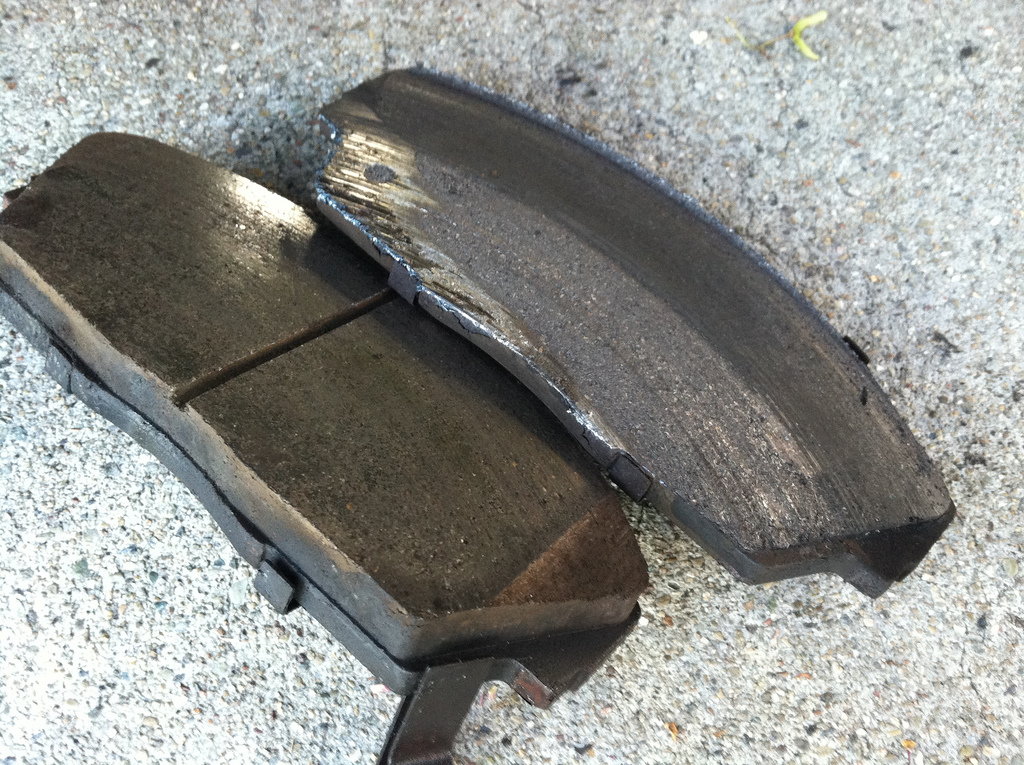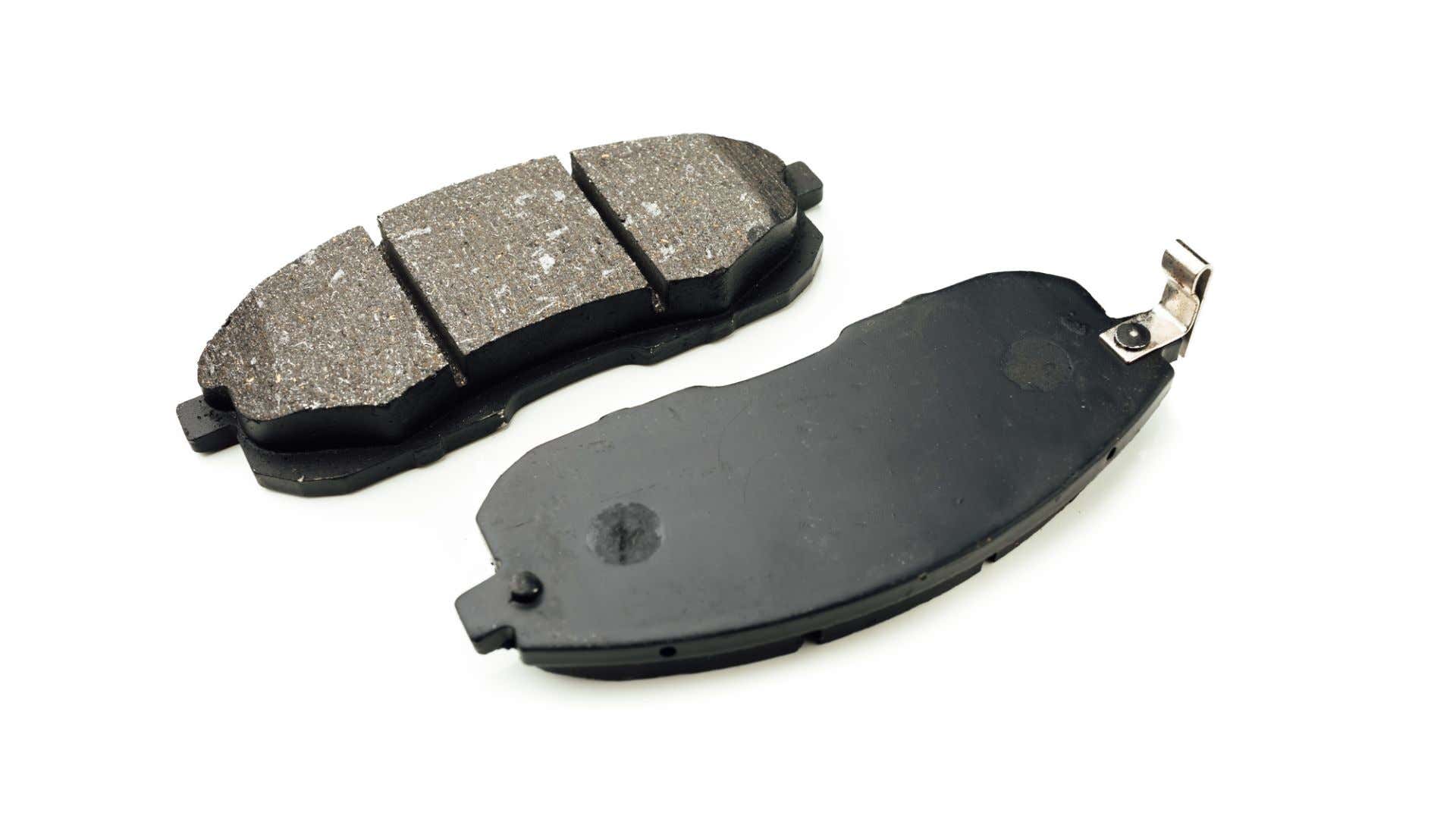
Lf 1 mm, rf 1 mm, lr 4 mm, rr 4 mm. Debris can get lodged between your rotor and brake pads, causing deep grooves to cut.

Another cause of grinding in a brake system is moisture on the rotor after sitting overnight, but this will usually disappear after you apply the brake a few times.
Brake pads worn out in 3 months. A grinding noise can be heard in a brake system when the pad�s life is exhausted (when the break pad is worn out). This is a sign of malfunctioning guide pins, bushings, or slides. Usually, the brake pads need replacing regularly because they wear out over time.
Brake pads are an integral part of your vehicle’s braking system and are located between the brake shoe and the brake drum. This could be a problem with the caliper pistons, the pads, the pad mounts, or an improper installation. On occasion, a problem can occur and cause uneven brake wear when one set of brake pads wears out faster than the rest.
Nowadays, most cars are equipped with sensors,that will start to squeal before your pads are completely gone depending on how you drive most pads, will last you a year. If the brakes are not bedded correctly when first installed, they can wear out very quickly. A couple of weeks ago, i got a warning on the dashboard that brake pads are warned out.
Be aware of inner pad wear. 3 things contribute to fast wear on the pads: Brake pads sit inside the brake caliper, and when you press down on your brake pedal, the caliper exerts pressure on the brake pads, which clamp onto the brake disc (brake rotor) to slow down your tires.
When the brake pads get worn out, the calipers will begin to rub the surface of the rotors, thereby damaging them. I have replaced the brake pads and rotors on the front passenger side of my vehicle twice in a month and they are ground down to bare metal ruining the rotor my car has 153000 miles. This is the standard thickness size for most new brake pads.
This type of wear is caused when the outer brake pad continues to rest against the rotor, even when the caliper is released. They are for the most part, made in china. It could be that the rotors are glazed, or the the brakepads have been overheated and the surface of them is damaged by the heat.
They are more exposed to the elements and are subject to damage from debris or heat. I don�t believe there is one brake rotor made in the usa today. Constant squealing every time you brake can mean that the pads are worn down to the plates.
If it fails due to the above, only when taking wheels off and inspecting brakes, discs, pads etc will it be apparent why the car has failed. I would check with the person,or shop that works ? You can also get a vibration when braking which feels like a warped rotor.
Debris can get lodged between your rotor and brake pads, causing deep grooves to cut. Brake rotors are not tempered to the specs of those that use to be made in the usa, so as a result, they over heat and warp quickly. Signs of excessive wear on the inner brake pad are a strong indicator.
It depends on how they�re used and how the car�s driven. Next will be either a blockage in a brake hose. Several brands of brake pads and shoes have wear indicators that will make noise when the friction material is worn low.
It could also be from improper lubrication of the caliper slides, or rust between the pads and the calipers. Another area to look at is to see if you have a bad wheel bearing. Sometimes they perish inside and act like a one way valve.
First, let’s break down exactly what a brake pad is! Without functioning brake pads, the. After a general service last week, the dealer said my brake pads have worn out, as the report read.
Also they will carry out a brake test and sometimes vehicle will fail that, could be due to discs & pads or handbrake or caliper. See if you can get a look at the used pads and rotors. If it is a good garage, they will keep you informed and get you the best prices.
Neither is a very good alternative, especially since you just put new pads on. 4) the spring on the right that keeps the pads slightly off the rotor when the brakes are not applied was missing, defective, or improperly installed. One possibility is siezed caliper pins:
While purchasing a new set of brake pads, you will want their friction material to be around 10 to 12 millimeters. The top 4 reasons are: Audi quoted me $850 for front pads and rotors which is too expensive to put on a lease car that is going back to the dealership in 4 months.
How thick a new brake pad should be? Just because they are making noise doesn�t mean the brakes are worn out. Discussion in �technical chat� started by 757yotas, oct 3, 2016.
Lf 1 mm, rf 1 mm, lr 4 mm, rr 4 mm. The first assumption would be sticky pistons in the calipers but very unlikely to be the same problem in two sets! This is caused by proper brake function.
However, in my last service six months ago (around oct 2010), break pads were are in near perfect condition (milage 33k), and the reading was. This is a major indicator that brake pads/shoes are worn, and the first sign you’ll probably encounter. Pads have about equal amounts of friction material on both pads.
In particular to check for uneven wear, ie: This actually occurs in extreme case but it is important to learn about it first. They should be an even thickness on both sides of the vehicle, just like the pads.
The brake system on a vehicle consists of a complex system of hydraulics, mechanics, and friction. As for the brake pads, again, cheap materials go into making them, and they wear out quickly. The outside pad or inside pad worn more than the other.
Those are designed as a warning that the linings are down to about 1/3. So, if you don’t replace worn out brake pads soon, they’ll damage your rotors too. However, this happens when the wearing out level is very high.
Brake pads worn out in 9 months ??? Another cause of grinding in a brake system is moisture on the rotor after sitting overnight, but this will usually disappear after you apply the brake a few times. The dealership gave me a heads up from the last service that front breaks are almost gone and they need a replacement.
My car has an automatic transmission. The easiest way to fix this problem is to replace the caliper and the brake pad. Your rotors are the disk that your brake pads press against.
This problem may occur for several possible reasons. If the problem is in one wheel predominantly then pull that hose off and check iternally. Lf 8 mm, rf 8 mm, lr 6 mm, rr 6 mm.
This can be anywhere from 25,000 to 60,000 miles or more, but there’s no set rule.